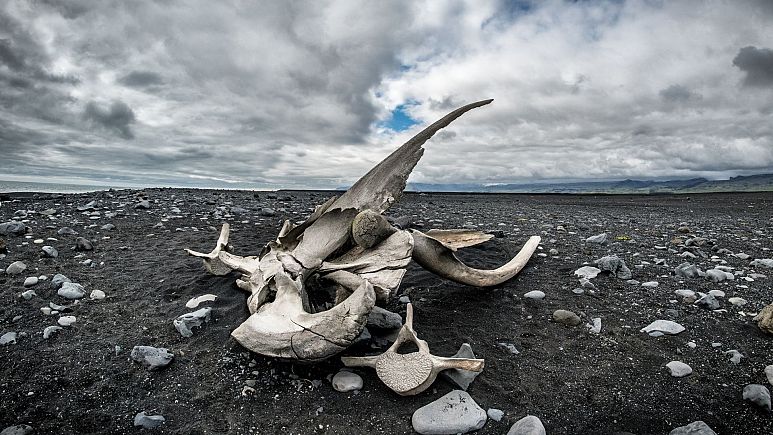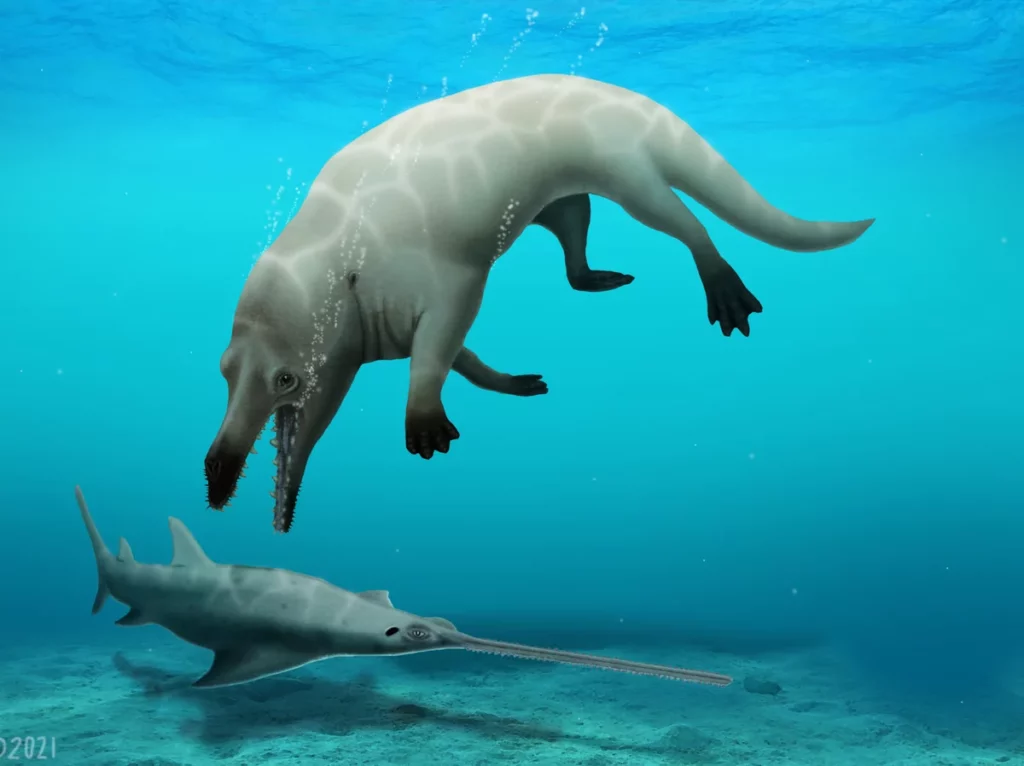Scientists discover 43 million-year-old fossil of a four-legged whale

Scientists have discovered the 43 million-year-old fossil of a previously unknown four-legged whale species, which helps trace the transition of whales from land to sea.
The newly discovered amphibious whale was found in Egypt and belongs to the Protocetidae, a group of extinct whales that falls in the middle of that transition, say the team of researchers.
Its fossil was unearthed from the middle Eocene rocks in Egypt’s Western Desert – an area once covered by sea that has provided an array of discoveries showing the evolution of whales. It was then studied at Mansoura University Vertebrate Palaeontology Centre (MUVP).
The whale, named Phiomicetus anubis, had an estimated body length of around three metres and a body mass of about 600 kg, and was likely a top predator. Its partial skeleton revealed it to be the most primitive protocetid whale known in Africa.
“Phiomicetus anubis is a key new whale species, and a critical discovery for Egyptian and African paleontology,” said Abdullah Gohar of MUVP, lead author of the paper published in the journal Proceedings of the Royal Society B.
Despite recent fossil discoveries, the big picture of early whale evolution in Africa has largely remained a mystery, say the researchers. More work in the region has the potential to reveal new details about the evolutionary transition from amphibious to fully aquatic whales.
The new whale has raised questions about ancient ecosystems and pointed research towards questions about the origin and coexistence of ancient whales in Egypt.

A group of scientists have discovered a fossil of a now-extinct whale with four legs. This visual reconstruction shows Phiomicetus anubis preying on a sawfish.
Are whales endangered?
Whales are at the top of the food chain and play an important role in the overall health of our oceans. In particular, they play a significant role in capturing carbon from the atmosphere.
Each whale sequesters a huge amount of CO2 in their lifetime. Because they store tonnes of carbon dioxide in their bodies, they are key to mitigating the climate crisis.
But six out of the 13 great whale species are classified as endangered or vulnerable, according to WWF.
Threats include habitat degradation, contaminants, climate and ecosystem change, disturbance from whale watching activities, noise from industrial activities, illegal whaling, reduced prey abundance due to overfishing, and oil spills.
It is crucial that we continue to have a healthy, dynamic population of these top predators, as if whales are threatened, it’s bad news for us all.

Abdullah Gohar, a researcher at El Mansoura university, works on renovating the 43 million-year-old fossil of a previously unknown amphibious four-legged whale species.

Laid out on a tray are parts of the 43 million-year-old fossil of a previously unknown four-legged amphibious whale called “Phiomicetus Anubis”, that helps trace the transition of whales from land to sea, which were discovered in the Fayum Depression in the Western Desert of Egypt.







